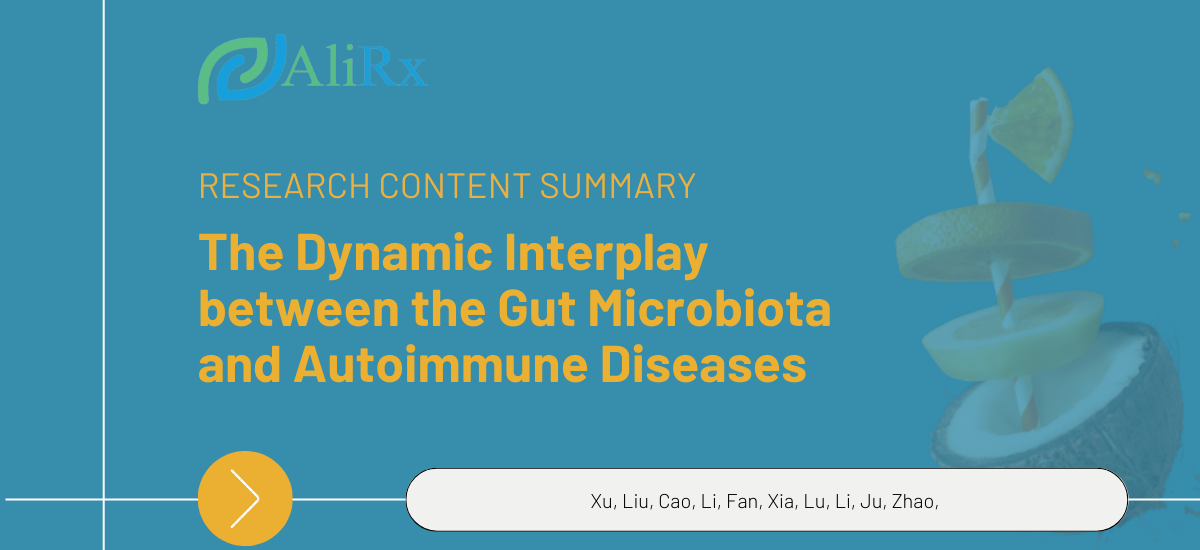Authors: Huihui Xu,# 1 Meijie Liu,# 1 Jinfeng Cao, 1 Xiaoya Li, 2 , 3 Danping Fan, 2 , 3 Ya Xia, 2 Xiangchen Lu, 2 Jingtao Li, 4Dahong Ju,
1 and Hongyan Zhao 1
Full Research Paper: https://www.ncbi.nlm.nih.gov/pmc/articles/PMC6854958/
Research Paper Summary:
The human gut microbiota has been shown to have a significant impact on human health and disease. Recent studies have investigated the role of gut microbiota in the development and progression of autoimmune diseases (ADs), a group of disorders characterized by the immune system attacking the body’s own tissues. This paper aims to review the current literature on the dynamic interplay between the gut microbiota and ADs.
The gut microbiota is a complex ecosystem of microorganisms that play a crucial role in host metabolism and immune system regulation. Dysbiosis, or an imbalance in the gut microbial community, has been associated with several ADs such as rheumatoid arthritis, inflammatory bowel disease, and multiple sclerosis. Dysbiosis can result in the production of pathogenic microbial metabolites that trigger pro-inflammatory immune responses, and also affect the gut barrier leading to the release of microbial antigens that trigger autoimmune reactions.
Conversely, certain gut microbial species have been shown to have a protective effect against ADs by promoting the development of regulatory T cells that suppress autoimmune responses. For example, a healthy gut microbiota can influence the development of type 1 diabetes by promoting the production of beneficial short-chain fatty acids that improve gut barrier function and promote immune tolerance.
The mechanisms underlying the dynamic interplay between the gut microbiota and ADs remain to be fully elucidated. Current research has identified specific microbial species that are involved in AD pathogenesis, and demonstrated the potential of gut microbiota-targeted therapies for the prevention and treatment of ADs. These include probiotics, prebiotics, and fecal microbiota transplantation, all of which aim to restore gut microbial homeostasis and promote a healthy immune system.
In conclusion, the gut microbiota plays a vital role in the development and regulation of the immune system, and dysbiosis can contribute to the pathogenesis of several ADs. The dynamic interplay between the gut microbiota and ADs represents a promising avenue for novel therapeutic approaches in these conditions. Further research is needed to better understand the complex mechanisms involved and identify specific microbial species and metabolites that can be targeted for therapeutic benefit.





